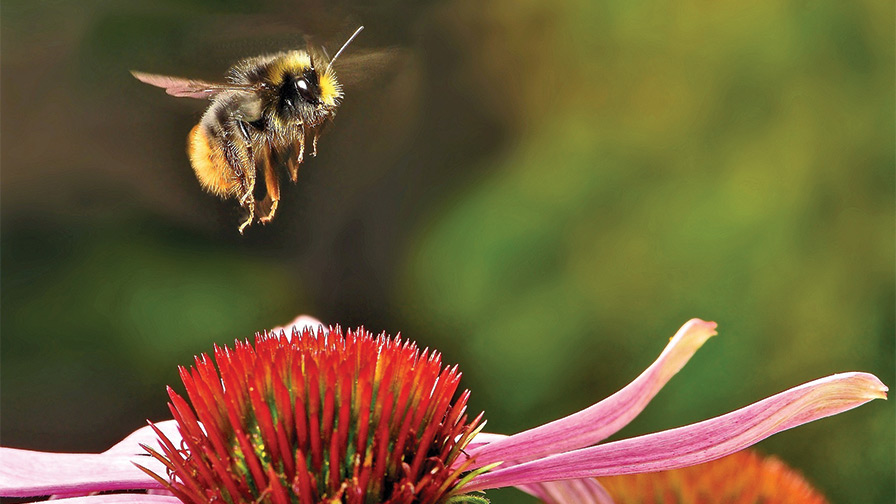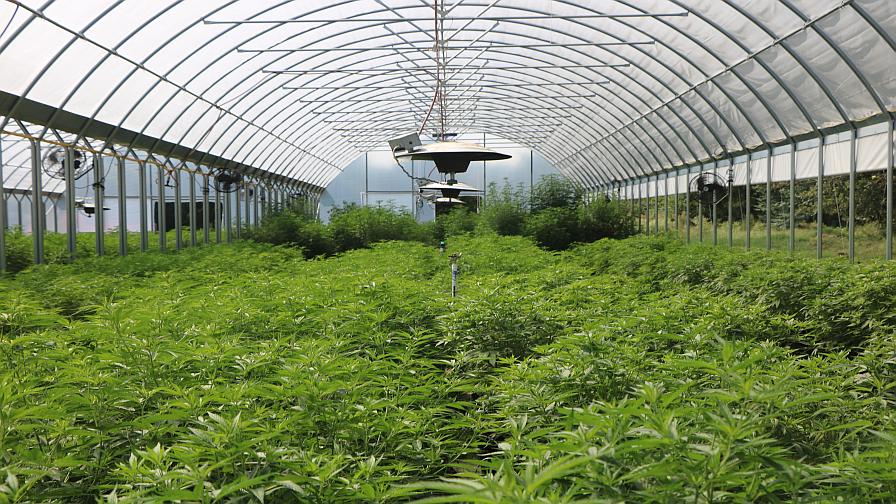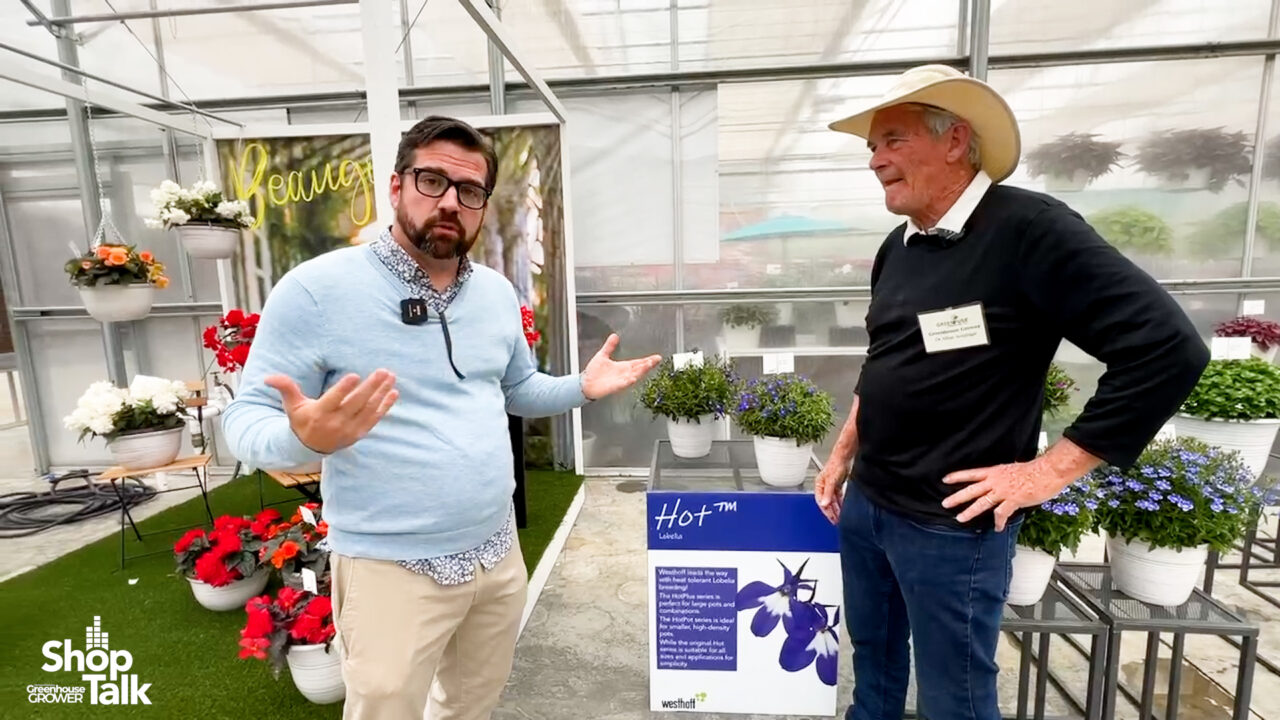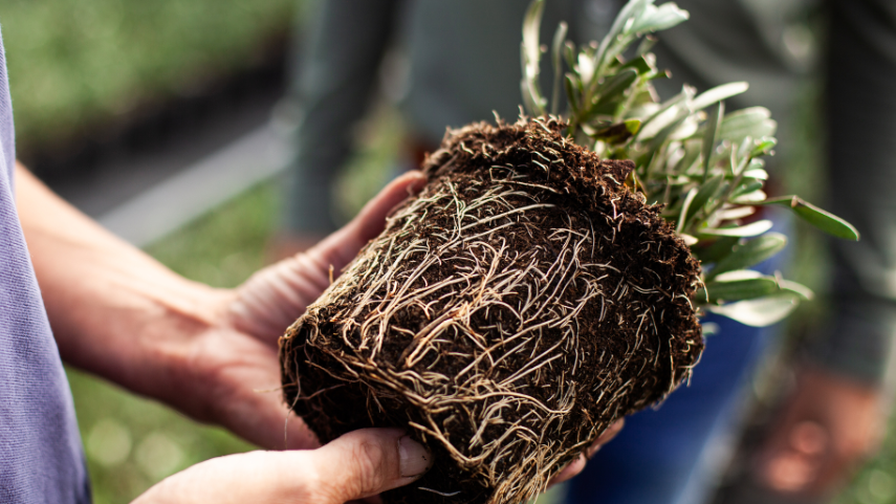Allan Armitage: Let’s Tell Our Story About Pollinator-Friendly Plants

With awareness about the importance of preserving our pollinators increasing, the story we have to tell about the critical role pollinator-friendly plants play in promoting their habitats will resonate with consumers more than ever.
In the last 10 years, we have become more aware of the role pollinators and pollinator plants play in the world’s ecosystem. We have come to understand that bees, butterflies, ants, and beetles contribute significantly to the global economy and food supply. We also know bees and butterflies are attracted to some plants more than other ones and that pollinator-friendly plants are important.
Of the great issues facing the ecosystems of our planet, there are not many that horticulturists and our industry can directly affect in a big way. The Amazon rainforest, the warming of planet Earth, and other issues all affect us, but there is little a gardener/horticulturist can do. However, let it not be said that we should not be involved in trying to maintain ecological balances at the local level. We brought out the marketing gloves, and we are now in the middle of the fight to reduce invasive plants, increase native flora, and promote pollinators. Profit motive aside, I sometimes feel we should all be wearing halos.
How Real is Real?
Of course, the profit motive doesn’t hurt any. We have been told that the native plant and the pollinator movements are real. We have responded by breeding more native plants, whose very definition (rightly or not) is that they attract pollinators better than non-natives do.
However, I am not sure what real means. For me, the realness test is if my neighbors and daughters are behind it. As I wander through the gardens of America, I wonder if the gardeners are thinking about natives/pollinators when they walk through the box store or garden center? Do they ask if the plants in their carts are good for pollinators? If they are not, why not? Or, are they aware of anything other than that the plants are pretty?
Are consumers catching up to our marketing messages, or do we have a ton more to do to be sure they are listening? Gardening concepts are always evolving, this being one of them. The issue of pollinators and pollinator-friendly plants was not even on the radar 10 years ago, but it surely is now.
Eight Consumer Purchasing Insights About Pollinator Plants
I read an interesting paper in the June 2017 issue of HortTechnology by researchers from the University of Georgia and the University of Florida. They surveyed the buying habits of consumers in relation to their interest in pollinators and pollinator-friendly plants. The survey was conducted in Connecticut, and approximately 850 people responded. Many esoteric points were uncovered.
Here are a few that interested me.
1. People are paying attention. About 46% of them have purchased pollinator-friendly plants and about 23% have moved to organic production practices. That is not high enough, but a significant number nevertheless.
2. While attracting pollinators was a reason to plant pollinator-friendly plants, nearly every respondent cited ornamental value and diversity (i.e., a pretty garden) as the main reasons they bought the plants. Pollinator-friendly was secondary.
3. If I had to guess why people are not bringing home pollinator-friendly plants, I would have guessed a lack of grab-you labeling. In the paper, the reason most cited for not purchasing pollinator-friendly plants was labeling, or the lack thereof.
We have been talking about labels, point-of-purchase materials, and solution-based benches set aside for issues like deer resistance and pollinators for years. Here is yet another survey that tells us there is still a lot to do.
4. Other reasons for not buying pollinator-friendly plants included higher prices and lack of diversity. It strikes me that if being a nickel more expensive (because of better labeling, packaging, etc) is the reason not to buy a pollinator-friendly plant, then the consumer was not interested anyway. Diversity (i.e., choice) is always an issue in the retail environment, from clothing to automobiles. We do the best we can.
5. A whopping 7% of the respondents thought all this hype about pollinators was just a marketing gimmick. Oh well, some people still don’t wear seat belts — not much we can do. However, that still means that 93% do believe in the importance of pollinators and pollinator-friendly plants.
6. There were some interesting differences between garden centers and mass merchandisers, mainly that fewer people bought pollinator-friendly plants in the box stores and that labeling (or lack thereof) was more of a perceived problem at box stores than at garden centers. Perhaps not surprising either.
7. Older consumers buy fewer pollinator-friendly plants than do younger consumers. This is to be expected, as eco-issues such as organic practices, pollinators, etc. resonate more in younger generations. And of course, what with better digital information and the use of good garden apps, it would be expected that younger people are more aware.
8. Consumers trust information that universities and industry associations provide about pollinator-friendly plants more than from other sources, and perhaps such information in stores may carry additional weight.
The authors share some potential remedies to enhance sales of pollinator-friendly plants. Ornamental value, diversity of product, and better labeling stand out as no-brainers. What we need to do is tell pollinator plant stories in a way that motivates consumers to purchase them. Garden spending is still below 2008 levels. People spend less, and they are still intimidated about what we sell.
Pollinators and pollinator-friendly plants are a feel-good theme that we all should be touting, nay shouting. Every retail outlet and catalog, and anywhere people purchase plants should be screaming: “We are good for the environment and the world.”
Let’s tell our story!









